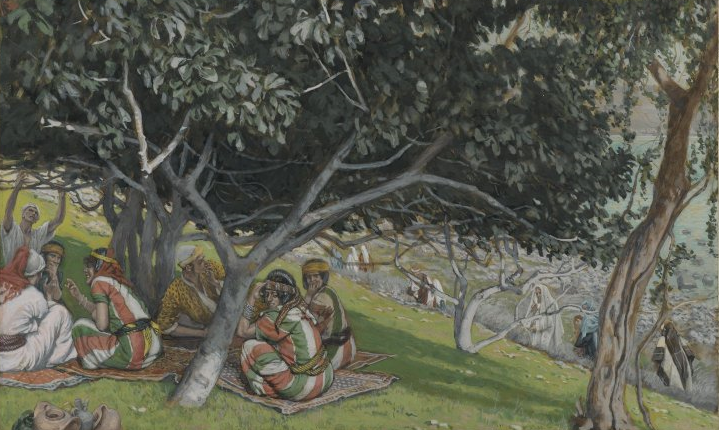“Godly grief produces a repentance that leads to salvation and brings no regret, but worldly grief produces death” (2 Cor. 7:10).
This verse from the rich book of 2 Corinthians tells us all we need to know about the difference between guilt and repentance. This is an important distinction to make – it has extreme consequences for our spiritual lives, for the way we relate to God and the way we believe he relates to us. It is an especially important distinction to make during the penitential season of Lent, when we spend time pondering the mystery and the harmfulness of our sin, and recognizing our corresponding need for a Savior.
Paul coins the term “Godly grief,” and he contrasts it with what we would call good old-fashioned guilt. There are several things to know about Godly grief: 1) It produces “repentance,” a term that in the Scriptures is associated with a change of mind and heart, a conversion or turning; 2) This repentance, or change of heart, leads to salvation. Why? Because when we recognize and turn away from sin, we turn back to God; and 3) It “brings no regret.” This is my favorite part. Godly grief leads to repentance, which turns us to our Savior, who frees us mind and body. When we turn to him with contrite hearts, the slate is wiped clean. Life with no regret? That sounds awesome!
“Worldly grief” is less complicated. It just produces death. Worldly grief (guilt) is the kind of sorrow and fretting that focuses on ourselves – what I did wrong, how bad I am, why I can’t stop. The reason this kind of grief gets us nowhere is because it has no point of reference beyond ourselves. It turns inward and stagnates.
Feeling bad for doing something wrong is a natural human emotion. It brings us to a fork in the road. In one direction, we can choose an open and honest sorrow for sin that unites us with a merciful God and reconciles us with our brothers and sisters (who are also sinners!). In this direction we move rather freely toward salvation, unfettered by regret and shame. In the other direction lies the dead end of guilt. If we follow this path, we get tripped up by our own road blocks until we finally just stumble into a pit. In the pit we feel restricted. Trapped within ourselves, it is dark, and we lose all sense of direction. We experience the slow, numbing death of negativity and self-loathing. From the bottom of the pit, how could we think of a Savior when we can’t stop thinking about ourselves? How can we hear his voice when we are so focused on the voices in our own heads?
This Lent, let’s cultivate Godly grief – not to be sad, but to be honest, to articulate within ourselves a need for something beyond ourselves, our need for the one who saves us. This is how we live a life without regret. This is how we live in salvation instead of death. This is how we move seamlessly from penitence to joy and from Cross to Resurrection.
If you’re in my area, here are a few things going on in the next few weeks:
Sat., 3/7: Share your Lenten journey with me at a Day of Reflection at the Caritas Christi Center in Hamden, CT. We will reflect on the Cross of Jesus and how it is a source of strength for us. The day will include quiet time for personal prayer. Registration is required. For more information, please click here and see “Lenten Retreat: Finding Strength in the Weakness of my Cross."
Sun., 3/8: The Hartford Catholic Biblical School is hosting a Scripture Day open to the public on Sun., March 8 at St. Thomas Seminary in Bloomfield. Dr. Thomas Groome of Boston College will present on connecting the Bible to our lives. The event is free, but registration is required. Please click here for the event flyer and registration.
Sat., 3/14: The World Meeting of Families is coming to Philadelphia this fall and…you might have heard Pope Francis is coming?!? Connecticut is getting ready! On the afternoon of March 14th, you can attend a World Meeting of Families CT Workshop. A keynote speaker and a panel of presenters will discuss various aspects of the Church’s understanding of family. The event will be held at the Knights of Columbus Museum in New Haven. A lot of hard work and planning has gone into this event, and I’m sure it will be a worthwhile day. Click here for the event flyer.


